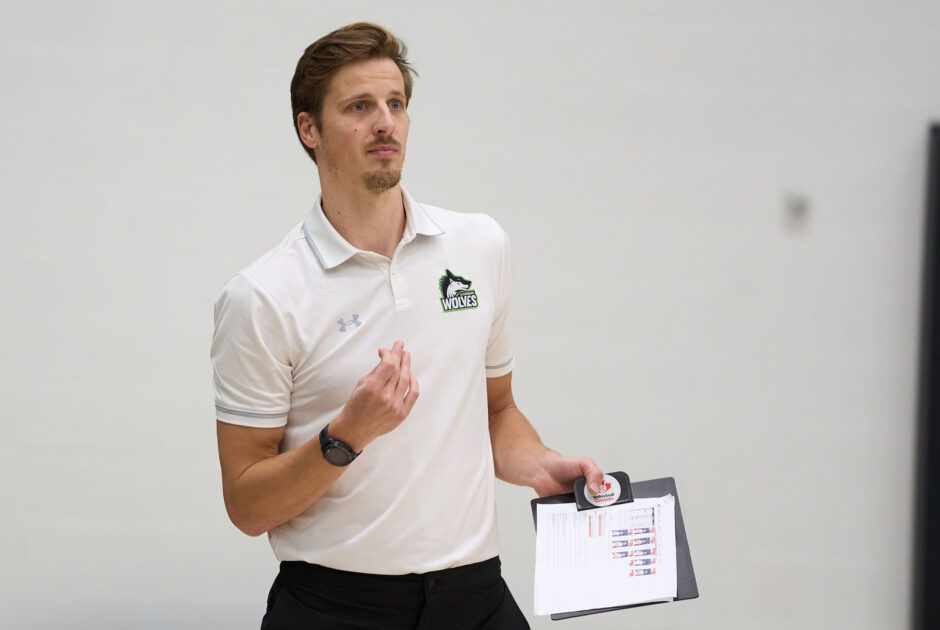How are Gen Z, Millennials and Gen X getting along at work?

When Stephanie Berglas, a level 3 advertising and marketing communications student, reflects on her place in the workforce as a member of Gen Z, she grapples with questions that may feel familiar to others like her.
“As a Gen Z-er, I often wonder if I’m fitting the entitled stereotype or simply asking for basic self-respect,” said Berglas.
Her internal struggle mirrors a broader debate in workplaces today, where generational stereotypes clash with shifting workplace boundaries.
Generational stereotypes often frame workplace dynamics as a clash of values, but beneath the surface, it’s a story of evolving expectations for balance, fairness and mutual respect in modern workplaces.
Work-life balance and fairness are not new struggles. For over a century, workers have fought against demanding schedules and inequitable conditions.
Today’s generational divides between Gen Z, Millennials and Gen X are often portrayed as new conflicts. But as history shows, these are recurring workplace battles shaped by cultural norms and shifting definitions of fairness.
In 1872, the Nine-Hour Movement demanded shorter workdays, leading to Labour Day as a national holiday. Decades later, the Winnipeg General Strike of 1919 mobilized 30,000 workers to fight for better wages and working conditions. By 1965, the 40-hour work week became the standard in Canada, setting the stage for future conversations about work-life balance.
Fast forward to today, Gen Z’s focus on flexibility and mental health echoes these historical efforts. The pandemic accelerated remote work, but the desire for fairness and balance has been a constant across generations.
To understand how the generational debate is unfolding, the Algonquin Times spoke with students about three key issues shared by Gen Z, Millennials and Gen X: generational stereotypes, burnout and work-life boundaries.
When it comes to generational stereotypes, who has a stronger work ethic, Gen Z, Millennials or Gen X?
Name, program and generation: Hassan Safaoui, level 3 advertising and marketing student, Gen Z.
Thoughts: Safaoui says experiences with technologies and financial pressures shape perceptions of work ethic. “Gen X probably had a better work ethic,” said Safaoui. “They didn’t have distractions like phones.” However, Safaoui acknowledged that millennials may be the hardest-working generation today, given their independence.
Name, program and generation: Emma Stronge, level 3 advertising and marketing student, Gen Z.
Thoughts: “Since a lot of us [Gen Z] can stay at home longer and it’s harder to move out, maybe we don’t feel as much pressure to work super hard,” she said.
Names, program and generation: Maxime Thibault and Joé Chénier, level 2 sheet metal and welding techniques apprenticeship students, Millenials.
Thoughts: As a millennial Thibault questioned the value of generational labels altogether. “People in the same generation don’t always share the same values and It’s more about how workplaces treat their employees,” he said.
Chénier rejected the notion of the lazy generation stereotypes outright. “People used to say the same thing about millennials, I refuse to do that, it just makes me sound old,” said Chénier.

Name, program and generation: Bhavarth Parikh, a level 1 regulatory affairs sciences student from India, Gen Z.
Thoughts: For international students like Parikh, the stakes are different. “If I’m given a project or an assignment, I must stay and finish it,” he said. Parikh exemplifies a Gen Z with a strong work ethic rooted in self-sufficiency. He believes in completing all tasks assigned by your employer, even if it requires working additional hours without pay. Unlike many of his peers, Parikh’s urgency is driven by financial independence as a newcomer. His story reflects how personal circumstances can shape workplace attitudes.
Do you believe burnout is a significant issue in today’s workplace culture?

Name, program, generation: Leah Brennan, a level 3 advertising and marketing student, Gen Z.
Thoughts: Burnout is a real issue for workers of all generations. “If you push yourself too hard, eventually you just won’t want to do anything,” she said and noted that strategies like scheduling work and breaks can help prevent burnout.
Name, program, generation: Joé Chénier, level 2 sheet metal and welding techniques apprenticeship student, a Millennial.
Thoughts: For Chénier, financial incentives often outweigh the need to say no. “If it’s dangerous, I’d say no, but in our field, they pay well, so I guess I’ll do what I have to do,” he said.
Burnout is not unique to any generation, but each group addresses it differently. Gen Z prioritizes mental health and boundaries, while older generations are more accustomed to pushing through.
When it comes to work-life balance and setting boundaries, would you feel comfortable saying no if your boss called you after hours to request an extra shift?
Name, program, generation: Stephanie Berglas, a level 3 advertising and marketing communications student, Gen Z.
Thoughts: Setting boundaries is a hallmark of Gen Z’s workplace approach. “Our age group is very aware of mental health practices, so we’re better at managing burnout,” she said. “We’ve helped workplaces evolve to focus on employee satisfaction and respect.”

Name, title, generation: Alison Elias, a personal organizer in Ottawa, Gen X.
Thoughts: Elias applauds the younger generations for setting boundaries in ways her generation never considered. “The older generations are willing to put up with more nonsense, Gen Z’s and Millennials are less willing to,” said Elias. “It’s not wrong; it’s just different and it’s the lack of adequate guidance that contributes to the generational divide.” Though she believes there is a generational gap between Gen Z, Millennials and Gen X, the gap is primarily due to differences in expectations and attitudes toward work.
The generational work clash isn’t a divide; it’s a sign of an evolving dialogue. Every generation has fought for workplace balance in its own way and this moment is no different. By understanding and respecting each other’s struggles, we can build workplaces that prioritize fairness and collaboration for everyone.








